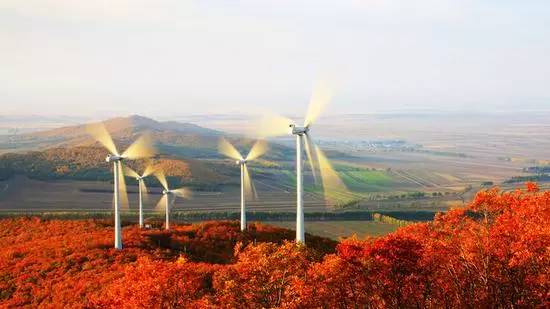


(File photo)
PARIS, Dec. 9 -- The International Energy Agency (IEA) chief Fatih Birol on Wednesday hailed China's significant achievements in energy efficiency, saying China is one of the countries that have the most determined policies in this regard.
While keeping an annual economic growth rate at about 7 percent, China's energy demand growth has slowed down, mainly thanks to the energy efficiency policies implemented by the Chinese government, Birol told a press conference at the ongoing UN climate conference in Paris.
China, which is already the largest hydropower user, will soon become the largest solar power user, Birol said. "China doesn't get the credit it deserves" in terms of the achievements in the energy sector.
"China is a very good example" in the development of renewable energy, Birol added, encouraging other countries to "make the same steps in the right direction."
He said the energy challenge China faces now is how to deal with coal in the future while keeping domestic energy prices at a level that does not harm the economy a lot.
Birol also highly appreciated China's constructive role on the global stage as demonstrated at the Paris climate conference.
He said a Paris agreement is widely expected with energy issues at the core and he supported a long-term goal which can boost technological innovation in the energy sector.
He considered the very heavy emphasis on energy efficiency and renewable energy showed in the Intended Nationally Determined Contributions (INDCs) presented by most of the 185 countries to the United Nations as a very good signal.
As countries made their INDCs with projections up to 2030, Birol said that 15 years is too short for the energy industry to change its behavior and to generate the expected results, thus he called for a long-term energy goal to be introduced in the expected Paris agreement.
Negotiators convened at the ongoing UN climate change conference are eyeing a post-2020 deal that will help limit the rise in global temperatures to less than 2 degrees Celsius above pre-industrial levels.
A final draft of a new global climate agreement was reached by negotiators on Saturday, ready for ministers to read and deal with sensitive political divergences this week before the 12-day conference ends on Friday.
 Chinese beauty with sexiest bottom
Chinese beauty with sexiest bottom All-star Carnival held in Beijing
All-star Carnival held in Beijing Charming female bodybuilders of Chengdu University
Charming female bodybuilders of Chengdu University Polish sports stars strip off for risqué calendar
Polish sports stars strip off for risqué calendar Spectacular aerial photos of the Three Gorges
Spectacular aerial photos of the Three Gorges Contestants of Mrs. Globe pose for photo in Shenzhen
Contestants of Mrs. Globe pose for photo in Shenzhen
 Bikini models attend hot pot banquet in Hefei
Bikini models attend hot pot banquet in Hefei J-10B fighters with homegrown engine in test fligh
J-10B fighters with homegrown engine in test fligh Photos of U.S. Navy intruding in South China Sea released
Photos of U.S. Navy intruding in South China Sea released Top 20 hottest women in the world in 2014
Top 20 hottest women in the world in 2014 Top 10 hardest languages to learn
Top 10 hardest languages to learn 10 Chinese female stars with most beautiful faces
10 Chinese female stars with most beautiful faces China’s Top 10 Unique Bridges, Highways and Roads
China’s Top 10 Unique Bridges, Highways and Roads On the prowl
On the prowl New home, sweet home
New home, sweet home Going abroad to get well
Going abroad to get well Islamophobic bluster stirs clash of cultures
Islamophobic bluster stirs clash of culturesDay|Week